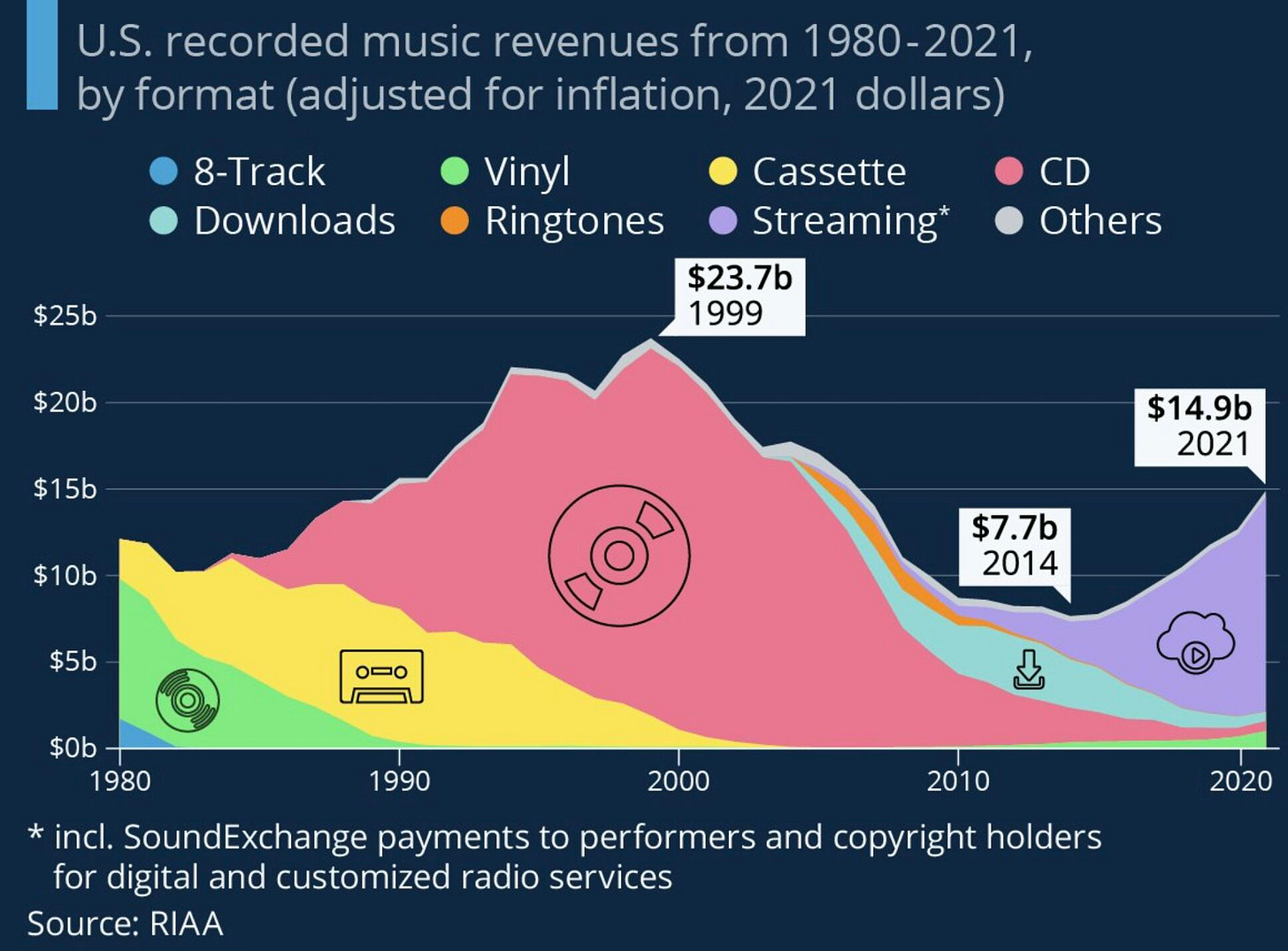Music and tech innovations have a love-hate relationship
Will AI be any different?
Every innovation in music technology has eaten music revenues - consistently. CDs replaced vinyl. Downloads challenged CDs. Streaming conquered downloads.
Each iteration of music technology has cannibalized the prior. The script: new technology arrives, threatens to upend everything, lawsuits fly, and then (maybe) everyone figures out how to make money together.
Most notably with internet: music revenues peaked in the late 1990s at $20B+ all thanks to CDs. However internet allowed for p2p file sharing (Napster, uTorrent et al) and those revenues cratered.
Streaming rescued the industry a decade later. Fun fact: Daniel Ek was the CEO of uTorrent before starting Spotify that rescued the industry! Today, platforms like Spotify and AppleMusic pay roughly ~70% of revenue to labels (Universal, Sony, Warner) who in turn pay ~15% to the artists. By 2021, U.S. music revenue was back to historical peaks $20B+ 😅
But this time is different?
AI music generators like Suno and Udio don't just distribute (incredible!) music, they create it. By training on existing songs, they can produce entirely new tracks that sound professionally made. This raises fundamental questions:
-- If an AI creates a hit song after training on Taylor Swift's catalog, who owns it?
-- How do you track which songs influenced an AI-generated track?
-- What happens when AI-created music becomes indistinguishable from human-made music?
Labels are in early talks with AI startups to build a “Content ID for AI,” so every time an AI model uses a catalog, royalties flow back. They’re hashing out fingerprinting, attribution, and fair pay. These negotiations will decide whether AI becomes music’s next golden era... or its next big disruption



Love this!
History suggests that music eventually adapts to every technological shock, but AI challenges the industry at the level of authorship itself. Whether “Content ID for AI” becomes a fair settlement or a façade will determine if this era rewards creators or repeats the mistakes of the Napster age.